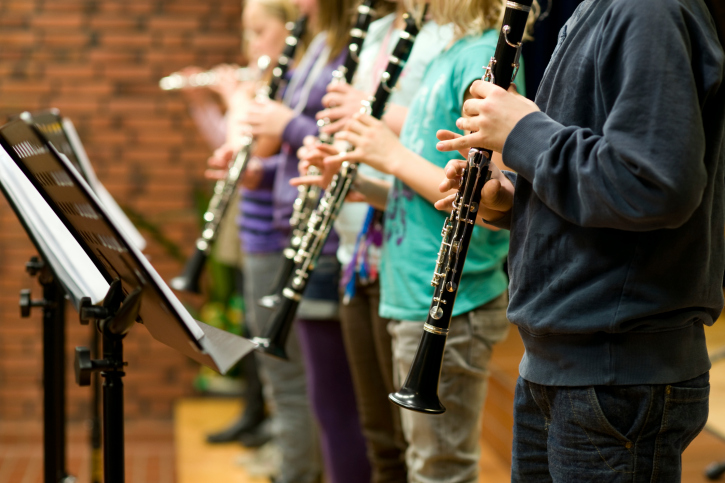For many of our customers the beginning of the school year means audition season, for high school band chair placement, or screened auditions for the college orchestra. Besides making sure you get your instrument out to practice the audition material, here are some things you can do to make sure you perform your best at an audition.
1. Take care of your body
This includes getting enough sleep, and proper nutrition. You should always be doing this, but especially the week or two (or more!) before an audition make sure you are eating healthy and nutritious foods to give you energy for focused and effective practice. When you're well rested (especially the night before the audition) you have better focus, especially when under stress.
2. Practice in less than ideal circumstances.
If you've ever performed under unusual circumstances or stress, you know that a little thing going wrong can throw you off your game. The audition room is a different temperature than the warm-up room, so your reeds stiffen up. The chair in the audition room is unusually sized. The acoustics of the room are really unusual. You can prepare for these kinds of "game changer" scenarios by doing a mock audition with a less than ideal reed, or in an odd space that sounds strange. This way, if something odd happens during the audition itself you're better prepared to handle the odd situation.
3. Visualize yourself playing at your best.
This goes beyond simply "imagine yourself winning the audition." Go through the entire audition, note for note hearing yourself play how you want to play. Have your clear musical goals presented in your visualization. Make it an active visualization so you remember how, in your mind, you felt, how the instrument felt, how the reed played. The more detail in your mind the better.
4. Practice during the same time of day as your audition.
This seems strange, but humans are habit forming creatures. The time of day you regularly practice establishes a rhythm in your body and mind, and you being to play best (or at least consistently the same) at that time of day. If your audition is likely to be at 1 in the afternoon, practice at that time for the few weeks coming to the audition.
5. Audition for others
I like to call this "practicing the performance." It goes beyond practicing the material and gets you in the mind set of actually preparing to do the audition (or recital), complete with walking to your chair and playing a few notes of warm-up, getting through the excerpts without stopping and restarting, and moving on to each next piece in relative silence. I like to do this for someone that I know will make me nervous, so pick someone you trust, but might make you feel as if the performance counts as the real thing.
For more great information on mental preparation and performance, check out the book The Inner Game of Tennis (there is also The Inner Game of Music).

